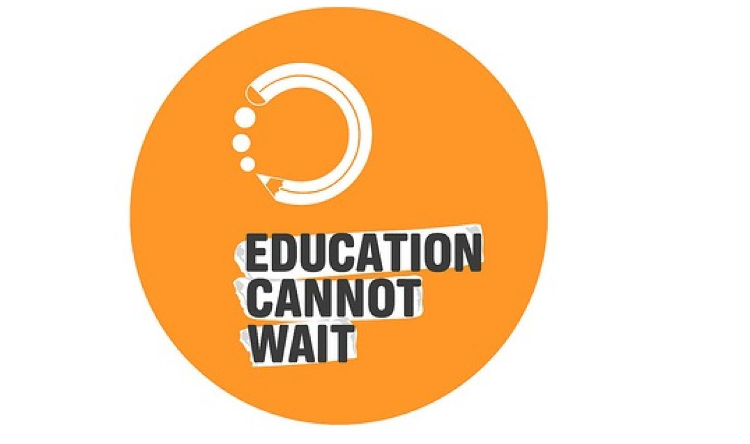Donors give US$138.1m to Education Cannot Wait

On the sidelines of this year’s United Nations General Assembly, public, private and philanthropic donors announced a total of US$138.1 million in new contributions to Education Cannot Wait (ECW).
The new contributions come from: Germany (€50 million; approx. US$58.6 million); United States of America (US$37 million); European Union/European Commission (€25 million; approx. US$29.3 million); The LEGO Foundation (DKK35 million; approx. US$5.6 million); France (€4 million; approx. US$4.7 million); Switzerland (CHF2 million; approx. US$2.2 million); and, Porticus (€500,000, approx. US$588,000).
This new round of funding contributions will accelerate the impact of ECW’s education in emergencies investments, which have already reached more than 4.6 million crisis-affected children and adolescents.
ECW’s COVID-19 response has also been delivered in record speed across 32 countries, reaching an additional 29.2 million vulnerable girls and boys.
Since its inception in 2016, ECW has mobilized US$828.3 million through the ECW Trust Fund, and helped leverage with its partners US$1 billion worth of programmes aligned with ECW’s multi-year resilience programmes in 10 countries.
“We all see the dramatic crises worldwide. Children and young people suffer the most from hunger, violence, and lack of education. Every child has a right to education. Thus, I am proud to announce that Germany will commit €50 million to Education Cannot Wait,” said Gerd Müller, Federal Minister for Economic Cooperation and Development of Germany.
“We need to act now, because we know that in times of crisis, education can offer stability, protection and prospects for the future. For 2022, we will make available a total of €50 million for the ECW multi-year resilience programmes, because education is key for achieving all dimensions of sustainable development,” said Dr. Maria Flachsbarth, Parliamentary State Secretary to the Federal Minister of Economic Cooperation and Development of Germany.
USAID Administrator Samantha Power said “The United States has proudly supported Education Cannot Wait since its inception in 2016. And we are proud to boost our support today. Education Cannot Wait is an educational lifeline in dozens of crisis-affected countries globally.
“We look forward to continued cooperation to increase access to education, improved learning outcomes and reach the most marginalized students – especially girls, refugees, internally displaced communities, gender and sexual minorities, and children with disabilities.
“We know when access to education is equal, the results are clear: greater economic growth, improved health outcomes, stronger democracies, more peaceful and resilient societies, and healthier and more successful children.”
President of the European Commission, Ursula von der Leyen: “We want all children to be born with the same opportunities. All too often, the fate and lives of our children are determined by the lottery of birth.
“This is why I am pleased to announce that Europe will be donating €25 million to the Education Cannot Wait global fund. An investment in education is an investment in a better world.”
European Union Commissioner for International Partnerships, Jutta Urplilainen said “We must unite to put the SDGs back on track. As we continue to witness, we can never take access to education for granted.
“Team Europe has to date contributed to more than 40% of the funding of Education Cannot Wait, and the new €25 million contribution from the EU will further support it to reach the most vulnerable children and bring them back to education.”
The Rt. Hon. Gordon Brown, UN Special Envoy for Global Education and Chair of ECW’s High-Level Steering Group: “As world leaders gather for the UN General Assembly and define a path to address the interconnected crises of conflict, COVID-19, climate change and forced displacement, these crucial contributions will ensure the world’s most vulnerable children and adolescents have the chance to go learn, grow and thrive.
“We call on all governments and private sector partners to follow suit and support the mission of Education Cannot Wait: to leave no child or young person behind in conflicts or as refugees, but to ensure they can exercise their right to a quality education. This is a true investment in peace and prosperity.”
Yasmine Sherif, Director of Education Cannot Wait said: “This new round of funding is a bold and important step in reaching the world’s most marginalized children and adolescents with the power of inclusive quality education.
“It shows the commitment of our strategic donors to scale up their generous support and we are deeply grateful for the trust placed in the proven ECW model. I thank you for this important funding by all of our partners, who came forward during the UNGA Week, enabling us to deliver more support, faster and more sustainably, for crisis-affected children and youth.”
Falling behind in achieving SDG4
Despite these significant contributions, large gaps for education in emergencies funding persist. ECW analysis of humanitarian appeals indicate that funding requirements for education grew from US$1 billion in 2019 to US$1.4 billion in 2020.
Global leaders are signaling the alarm bells as new reports indicate the world is falling behind in delivering on the Sustainable Development Goals, (including SDG4 for inclusive equitable quality education), by 2030.
According to the United Nations, COVID-19 has wiped out 20 years of education gains, with an additional 101 million of children in grades 1 through 8 falling behind in minimum reading proficiency levels. Globally only 85% of children completed primary school in 2019, up from 82% in 2010, while only about half of students will graduate from secondary school.
An estimated 1.5 billion students were impacted by COVID-19 school closures, and a recent study by the Malala Foundation estimates that an additional 20 million girls would lose their access to education as a result of the COVID-19 crisis.
Girls and boys already impacted by conflict, climate change and displacement are being pushed further to the margins. When these girls and boys are pushed out of school, they face increased risks of gender-based violence, forced recruitment, and other grave violations.
ECW

